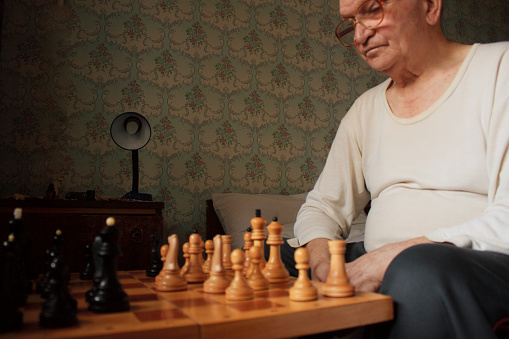How does one fill their days when they have been afflicted with Alzheimer’s Disease? In particular, what if the symptoms are not as advanced and the patient can still do things for themselves without having to depend on total caregiving? More than likely, their ability to work has been suspended and socializing has become a difficult task.
According to alz.org, Alzheimer’s disease typically progresses slowly in three general stages — mild (early-stage), moderate (middle-stage), and severe (late-stage). Since Alzheimer’s affects people in different ways, each person will experience symptoms – or progress through Alzheimer’s stages – differently.
The disease itself can progress over several years –up to 20 in some patients. This makes it even more crucial, that once diagnosed, that the patient remains physically and intellectually active.
For purposes of this blog, let’s take a look at what early stage Alzheimer’s looks like and the ‘average’ functioning ability of this subset.
Early stages of this disease play out in a fairly consistent scenario; the individual may very well still work, socialize and drive, however, as memory lapses start to occur, it can hinder their ability to find their way to work, remember the tasks at hand, as well as difficulty in organizing and planning their day. It may be at this point that they may have to surrender the keys to the car and/or quit their job.
Once this occurs, the adjustment can be quite traumatic, often resulting in depression and withdrawal. Family members will need to assist in making sure their loved one feels they still have a purpose in life. While they are not quite ready for caregiving, helping your loved one to organize their day, staying active and engaged can help with this transition to home life.
Read the newspaper: Crossword puzzles, comics and lifestyle sections – help them to remain positive instead of concentrating on the ‘bad’ things going on in the world.
Initiate a craft project: Suggest going through old pictures- arranging them by group, trip or time of life – this is a great way for them to remember their lives and to keep memories alive.
Take a daily walk: Staying physically active is critical for an Alzheimer’s patient—the fresh air and break in daily routine is very important. If there is a fear of wondering, perhaps it has to be done with a caregiver, friend or family member.
Keep the mind active: Play a game, watch a movie, read a book or magazine or do jigsaw puzzles or engage in a card game.
Some or all of these are also great for those who have middle stage dementia. Remember-your loved one can still have quality of life as long as their days are filled with purpose and in a stress free environment.





